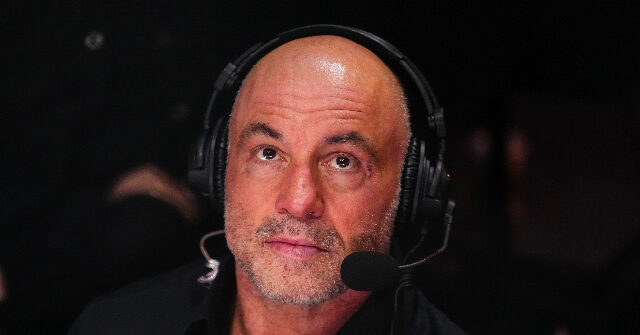In a recent podcast episode, Joe Rogan conveyed his deep concerns regarding the potential implications for free speech should Kamala Harris and Tim Walz emerge victorious in the upcoming November 2024 election. With a significant platform and millions of listeners, Rogan argued that the Democratic officials’ documented tendency to lean toward censorship could be detrimental to the First Amendment rights outlined in the U.S. Constitution. He expressed skepticism about a shift toward a more open dialogue if Harris assumes a leadership role, suggesting instead that there would be a further tightening of free speech regulations. Rogan’s commentary is particularly reflective of a broader sentiment among some groups that fear increasing governmental control over public discourse and expression.
Rogan highlighted specific remarks made by Vice President Harris that stoked his concerns, particularly her assertion about Elon Musk potentially “losing his privileges” if he failed to align with her vision of censorship. He interpreted these comments as indicative of a dangerous trend in which authorities could dictate acceptable speech and impose restrictions on individuals and platforms that do not comply. This fear of government overreach into the realm of free expression was further emphasized by Rogan’s mention of X (formerly Twitter) and Rumble as bastions where free speech seems to thrive, contrasting sharply with what he perceives as the impending encroachments under Harris’s proposed policies.
In addition to Harris, Rogan took aim at Minnesota Governor Tim Walz, condemning his claims regarding the limits of free speech. Walz argued that the First Amendment should not protect “misinformation” or “hate speech,” a position that Rogan vehemently opposed. He asserted that the essence of the First Amendment lies in allowing individuals to express potentially erroneous views, which can then be corrected by those with more expertise. This ongoing dialogue and correction process, according to Rogan, is fundamental to a healthy and functioning democracy, underscoring the importance of legal protections for free speech even in contentious discussions.
Rogan’s discourse reflects a broader narrative within certain political circles that views the Biden-Harris administration as hostile to free expression. Citing a coalition of 20 state attorneys general who voiced concerns over the Biden administration’s censorship efforts, Rogan situates his alarm within a larger context of perceived threats to civil liberties. He suggests that attempts to regulate what constitutes “disinformation” threaten to undermine the foundational principles of democratic discourse, characterizing the government’s role in this context as potentially oppressive.
Furthermore, Rogan’s arguments resonate with a growing public unease about the increasing intertwining of technology, social media, and governmental oversight pertaining to speech. The reaction from influential voices within the tech industry—most notably from Elon Musk, who endorsed Rogan’s perspective—echoes a shared apprehension about regulatory frameworks that could limit personal freedoms. As misinformation, hate speech, and related issues occupy center stage in political discussions, figures like Rogan are raising alarms about the potential ramifications of stringent policies and the precedent they may set for the future.
As the 2024 elections approach, the stakes surrounding the conversation on free speech appear to be rising. Rogan’s warnings serve as a rallying cry for those who value unfettered expression and are wary of perceived encroachments by governmental entities. His views resonate within broader debates about individual rights, media responsibility, and the role of social platforms in fostering diverse and open discourse. Ultimately, the trajectory of free speech in America may hinge on the outcomes of these elections and the policies enacted by those in power, making the preservation of First Amendment rights a pivotal issue for the electorate.

